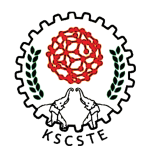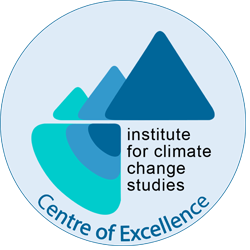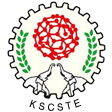
Decoding Climate Change: From Modelling to Machine Learning
2nd to 4th September, 2024

| Schedule | Dates |
|---|---|
| Last date of Application | 12th August 2024 |
| Notification of acceptance | 14th August 2024 |
| Workshop Day 1 Opening Ceremony Plenary Talk Hands on session 1 | 02nd september 2024 |
| Workshop Day 2 Plenary Talk Expert Lecture Hands on session 2 | 03rd september 2024 |
| Workshop Day 3 Expert Lecture Valedictory Ceremony | 04th september 2024 |
Background
Climate change, a pressing global concern, is intricately linked to both human actions and natural processes. Its effects transcend geographical boundaries, impacting ecosystems, economies, and societies worldwide. The increasing intensity and frequency of extreme weather events such as heatwaves, heavy rainfall, droughts, cyclones, and floods highlight the urgency of understanding and addressing this phenomenon. The multifaceted nature of climate change necessitates the use of advanced tools and methodologies, with climate modelling emerging as a critical component in this endeavour. Climate modelling serves as a powerful tool for simulating and predicting the future behaviour of the Earth's climate system. By incorporating various physical, chemical, and biological processes, these models allow researchers to explore different climate scenarios and assess potential impacts. This workshop is designed to delve into the fundamentals of climate modelling, providing participants with the essential knowledge and skills needed to effectively utilize these models in their research.
The curriculum covers a comprehensive range of topics to ensure a robust understanding of climate modelling. One of the critical aspects of climate change research is distinguishing between natural climate variability and human-induced changes. The workshop will address techniques to isolate human-induced climate change signals, enabling researchers to better understand the extent and impact of anthropogenic activities on the climate system. This understanding is crucial for developing targeted mitigation and adaptation strategies. The workshop also explores the exciting potential of Artificial Intelligence (AI) and Machine Learning (ML) in climate change assessment. AI and ML techniques offer innovative approaches to analysing complex climate data, improving model performance, and generating more accurate predictions. Participants will learn how to integrate these advanced technologies into their climate research, enhancing their ability to tackle the challenges posed by climate change. By the end of the workshop, researchers will be empowered to navigate the intricacies of climate modelling and contribute meaningfully to solutions for a sustainable future. This training aims to equip emerging scholars with the tools and knowledge necessary to advance climate science and support efforts to mitigate and adapt to the impacts of climate change.
Aim
- To introduce the fundamentals of climate modelling
- To explore techniques for isolating human-induced climate change signals
- To integrate Artificial Intelligence (AI) and Machine Learning (ML) in climate research
- To foster interdisciplinary collaboration
Who Should attend
Researchers, educators, and early career scientists interested in advancing their knowledge of climate change assessment are encouraged to attend.
Workshop Mode
The workshop is planned to be in offline mode at Kottayam, Kerala.
Experts from Institutions of National Importance and R & D Organizations:
- Dr. Sabin Thazhe Purayil, IITM Pune
- Dr. Sachin S. Gunthe, IIT Madras
- Dr. Francis P. A. , INCOIS
- Dr. S. Abhilash, CUSAT
- Dr. K. S. Kasiviswanathan, IIT Roorkee
- Dr. Athira P. , IIT Palakkad
- Shri. Anand Sebastian, IRTC
- Introduction to Weather, Climate, and Climate Change
- Introduction to Climate Modeling
- Indigenous Measures to Adapt to Climate Change
- Application of AI & ML techniques in Climate Change Assessment
Includes extensive hands-on sessions. Participants are requested to bring their own laptops.
Organizing Team
Ex Officio Principal Secretary S&T Department & Executive Vice President KSCSTE
Director, KSCSTE- Institute for Climate Change Studies, Kottayam
Organizing Secretaries
Senior Scientist, ICCS
Mob: +91-9074051401
Email: ccbajish@iccs.res.in
Junior Scientist, ICCS
Mob: +91-9567047444
Email: sinan@iccs.res.in


